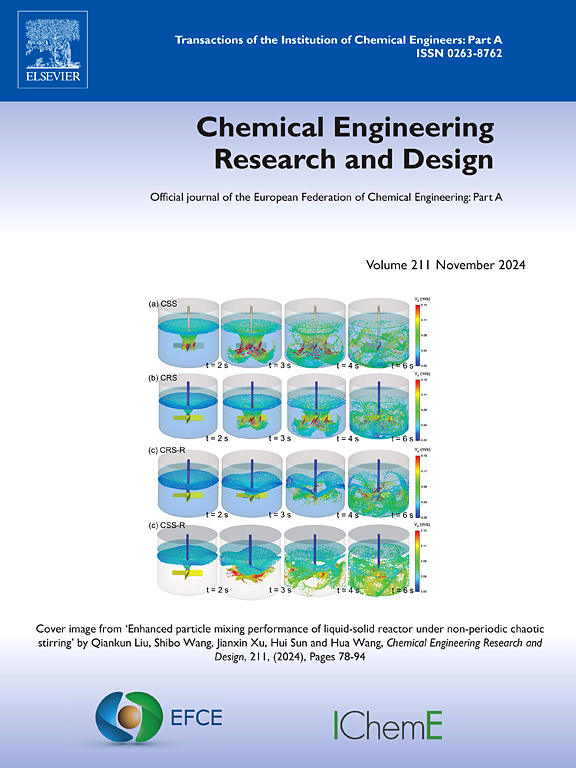碳减排条件下加工时间不确定的炼钢-连铸的主动调度
IF 3.9
3区 工程技术
Q2 ENGINEERING, CHEMICAL
引用次数: 0
摘要
为解决加工时间不确定的炼钢-连铸主动调度问题,建立了一个模糊调度模型,在考虑机器能耗的情况下,使总完成时间、最长经过时间和碳排放最小化。提出了一种改进的多目标白鲸优化算法(MOBWO-VNS)来解决该问题。在 MOBWO-VNS 算法中,使用了过程-机器匹配规则来提高初始解的质量,设计了自适应分层进化策略来提高收敛速度,并引入了可变邻域搜索策略来加强算法的局部搜索能力。算法的多样性和收敛性通过基准函数得到了验证。利用某钢铁厂的实际生产数据进行了确定性调度和模糊调度的对比实验,验证了模糊调度的可行性和鲁棒性。利用大规模数据设计了大规模调度评估实验,结果表明,所提出的模型和算法可将总完成时间、最长已用时间和碳排放量分别减少 7.6%、19.2% 和 2.2%。结果表明,该研究可以优化时间和能耗目标,提高企业的生产效率,为钢铁企业的绿色转型提供有力支持。本文章由计算机程序翻译,如有差异,请以英文原文为准。
Proactive scheduling of steelmaking-continuous casting with uncertain processing times under carbon emission reduction
To solve the proactive scheduling problem of steelmaking-continuous casting with uncertain processing time, a fuzzy scheduling model is established to minimize the total completion time, maximum elapsed time, and carbon emission, considering machine energy consumption. An improved multi-objective beluga whale optimization algorithm (MOBWO-VNS) is proposed to solve it. In MOBWO-VNS, the process-machine matching rule is used to enhance the quality of initial solutions, an adaptive layered evolution strategy is designed to improve the convergence speed, and a variable neighborhood search strategy is introduced to strengthen the algorithm's local search capability. The diversity and convergence of the algorithm are verified by the benchmark function. A comparison experiment between deterministic scheduling and fuzzy scheduling is carried out using the actual production data of a steel plant, and the feasibility and robustness of fuzzy scheduling are verified. Large-scale scheduling evaluation experiments are designed using large-scale data, and the results show that the proposed model and algorithm reduce the total completion time, maximum elapsed time, and carbon emissions by 7.6 %, 19.2 %, and 2.2 %, respectively. Results show that this study can optimize the time and energy consumption targets, improve the production efficiency of enterprises, and provide strong support for the green transformation of steel enterprises.
求助全文
通过发布文献求助,成功后即可免费获取论文全文。
去求助
来源期刊

Chemical Engineering Research & Design
工程技术-工程:化工
CiteScore
6.10
自引率
7.70%
发文量
623
审稿时长
42 days
期刊介绍:
ChERD aims to be the principal international journal for publication of high quality, original papers in chemical engineering.
Papers showing how research results can be used in chemical engineering design, and accounts of experimental or theoretical research work bringing new perspectives to established principles, highlighting unsolved problems or indicating directions for future research, are particularly welcome. Contributions that deal with new developments in plant or processes and that can be given quantitative expression are encouraged. The journal is especially interested in papers that extend the boundaries of traditional chemical engineering.
 求助内容:
求助内容: 应助结果提醒方式:
应助结果提醒方式:


